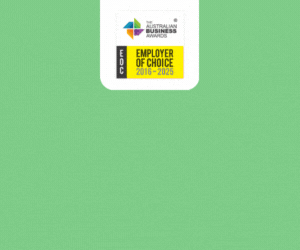In The Field
Provider
New tool will support educators and others to better manage concussions in toddlers

Freya Lucas
Jun 04, 2021
Save
Researchers from the Université de Montréal have developed a unique observational tool for assessing children up to five years of age who have had a concussion.
Pediatric traumatic brain injury (TBI) is particularly prevalent in toddlers, because they are more likely to be injured as they have a lower sense of danger and are still developing physically. Educators, parents and clinicians often have trouble detecting symptoms of trauma, given the limited verbal skills of many toddlers.Traditionally, it was suggested that TBI in early childhood did not have significant adverse effects, because the high plasticity of the brain at this time of life allowed for rapid recovery.
"This is true to some extent, but the reverse is also true," said principal author Miriam Beauchamp. "In young children, many things are not yet permanently consolidated. So when a shock disrupts brain function, the response can be as damaging as in older children."
Young children may often not have the verbal capacity to say they have a headache, or feel dizzy, first author Dominique Dupont further explained.
Given that assessing post-concussion symptoms is the cornerstone for patient management and follow-up, this lack of feedback can be detrimental to longer term outcomes.
To address the lack of assessment tools for this age group, researchers designed a new observational tool that allows parents and clinicians to assess the child's health status.
The tool is also designed to document the progression of symptoms and their severity over time, building on the researchers belief that it was “paramount to develop a tool to document the physical, cognitive, and behavioural status of these children and allow for appropriate clinical management."
As well as young children often not having the language to describe their condition or symptoms, typical post-concussion symptoms can be easily confused with behaviours typical of the birth to five years developmental period.
"No one is surprised when a one-year-old becomes irritable or throws up their snack," Ms Dupont added.
In designing their new tool, the researchers listed all the known symptoms observed in older patients: headaches, memory loss, difficulty concentrating, hypersensitivity to light and noise, irritability, balance or coordination problems, dizziness, and sleep problems are among them.
They then catalogued post-concussion manifestations observed in very young children. The research team then broke down these symptoms into observations that reflect their child's actual condition.
"Unlike the questionnaires we use with older children, here we include examples to explain how symptoms can manifest in a young child," Ms Beauchamp said. "We also added observations that are potentially unique to this age group and therefore not found in existing questionnaires.
"For example, we asked questions about so-called comfort-seeking: 'Is my baby in my arms more often?' and 'Does my child keep asking for their pacifier or stuffed animal?' We also use 'regression' observations: 'Was my child potty trained, but is no longer?' and 'Did my child sleep through the night, but now wakes up at all hours?'"
"We are continuing our research to compare post-concussion symptoms with the behaviour of children who have not been injured in a large multi-centre study in Canada. Ultimately, we'll be able to transfer the tool to clinical use throughout Quebec, and even internationally."
To access the initial findings, please see here.
Don’t miss a thing
Related topics
Affordability & Accessibility
Compliance
Legislation
Leadership
In The Field
Advocacy
Marketplace
Corporate activity
Professional development
Allied Fields
Innovative Research
Understanding Children
Family Day Care
Long Day Care
NQF and Policy Changes
Outside School Hours Care
Politics
Preschool
General News
Supply & Demand
Property
Report Summaries
Changes
Reporting
Examples
Services
Personnel Appointments
Events News
Products
Jobs News
Jobs Tips and Resources

















